
Grade: 10th
Position: Copy Editor
Favorite hobbies/activities: baking, reading and tAkInG LoNg WaLkS oN tHe BeAcH.
Michelle Hwang is currently...
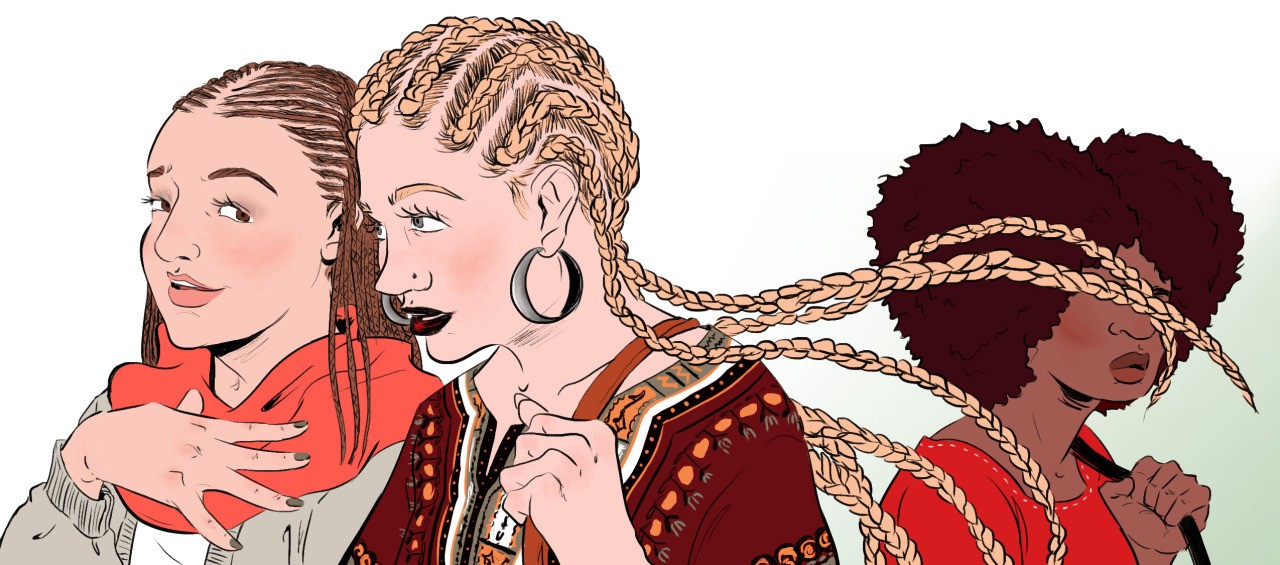

We all know that North Allegheny is a culturally diverse community and the fact that we are all able to come together and respect each other’s heritage is a key part of this. But sometimes, intentional or not, we happen to overstep the boundaries that separate each culture. And not trying to be hypersensitive or anything, but it is important that we really understand how to respect and be aware of the different elements/values of each culture
April 1, 2019
Cultural appropriation. I’m sure that you’ve heard those words somewhere and sometime before. Whether it be from the “My culture isn’t your d*mn prom dress” meme, some heavily opinionated social media account ranting about Kylie Jenner’s cornrows, or a news outlet reporting yet another story on how a celebrity was caught dishonoring a sacred tradition, awareness on cultural appropriation has spread like a wildfire.
And this isn’t necessarily a bad thing. It’s extremely important that we educate ourselves on the different cultures that exist around us so that we don’t accidentally insult someone’s values. But before we delve any further into the schematics and controversy around cultural appropriation, it’s important to know what it exactly is.
First, let’s take a look at an official definition. Cambridge dictionaries define cultural appropriation as
“The act of taking or using things from a culture that is not your own, especially without showing that you understand or respect this culture.”
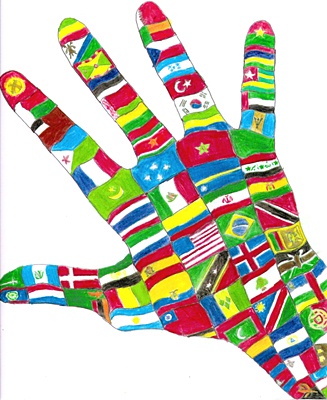
This definition explains cultural definition in a very clean and simple way. But it’s also missing a few key points about the aftermaths of cultural appropriation that might create some misconceptions about it.
It’s not that the mixing of cultures is bad. In fact, it’s because we have been able to share and understand each other’s cultures that the world has grown into such a beautiful place. Diversity is the driving force behind innovation and the continued development of our society. It is through these different ideas, different morals and different lifestyles that we are able to come up with solutions to complicated problems and have our own communities flourish. But in the process of spreading our diversity, we have to be careful so that we don’t cross the line into misappropriating.
In many cases, usually during celebrations such as Cinco de Mayo or Halloween, where traditional objects, such as clothing or cultural artifacts are used, misappropriating of these items strips it of its meaning and significance. Taking this valuable item out of its original context and placing it into a situation where it isn’t used for its correct purpose eventually erases this item of its history and detaches it from its home culture.
Take the popularly misworn Native American warbonnet for example. Unbeknownst to the many who wear this intricately feathered headdress to music festivals and Halloween parties, eagle-feather war bonnets are a ceremonial piece of clothing worn by important chiefs and warriors from the Native American tribes in the Great Plains. Earning the right to wear this symbolic article of clothing meant a male warrior had to display valiant acts of courage and tenacity on the battlefield. To be able to wear this sacred warbonnet was a great honor and definitely not something to used casually or carelessly.
But when a person who is not a part of that culture places that warbonnet on their own head, without knowing the purpose, history, and value behind it, they claim that it is theirs and steal it away from the Native American people. Leaving this item to be nothing more than a glorified fashion statement and a shallow attempt to be “cool”.
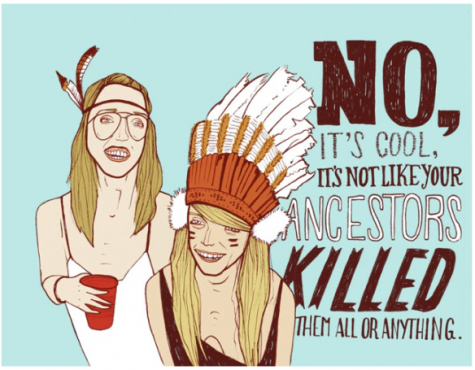
But misappropriation doesn’t just stop at devoiding an object of its importance, it also has the power to spread misconceptions about the people of that culture. Trying to publicize the “appealing” parts of a culture without understanding the fundamental morals and principles behind it only results in lies about that culture being spread. And when more and more incorrect stereotypes circulate through the minds of our society, hatred is able to bury itself deep within our hearts and give way to things like discrimination, prejudice, and misplaced blame.
Let’s use the almost 5-year legal battle between the Navajo tribe and Urban Outfitters between the Navajo tribe and Urban Outfitters for example. In 2012 the Navajo filed a lawsuit against Urban Outfitters for using the tribe’s name in association with its new line of items, which included a “Navajo print flask” and “Navajo hipster panties”, without consent. Naturally, this didn’t sit well with the tribe members. Especially since modesty is stressed within Navajo values and alcohol is banned on the reservation.
Eventually, an agreement was settled between the two sides in November of 2016. However, the point remains that Urban Outfitters’ “Navajo inspired” line spread many misconceptions about the Navajo tribe’s principles and associated their name with tacky jewelry and cheap, mass-produced t-shirts. This incident undoubtedly added to the many misunderstandings about the Native Americans and the damage done will take a long time to undo.
The most disgusting part of misappropriation is how it directly crushes the spirits of a culture’s people. When a person steals parts of someone else’s culture, then turns around and advertises it, mass produces it and receives praise for it, the people of that culture are left to pay the price for someone else’s to profit.
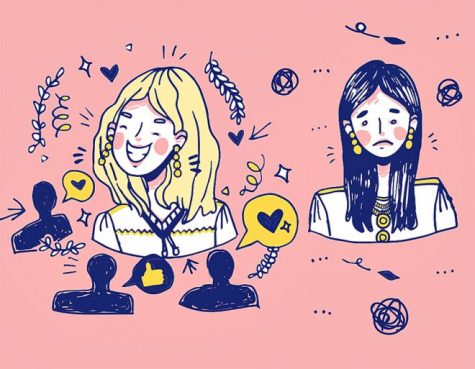
Imagine what it would feel like to have a special tradition that has been part of your culture for centuries, truly expresses the core identity of who you and your people are, and more than anything belongs to you and you only in a country where it feels like you don’t belong anywhere. Now imagine what it would feel like to have that tradition stolen away from you from a person who doesn’t understand. Have them turn it into some meaningless fad and then to have that same person receive praise for demeaning your culture.
Not fun right? This is just half of it. Giving credit where credit isn’t due can damage on an even deeper level because it also undermines the struggles that people of a specific race have had to endure as they try to wear their culture with pride.
Take for example the prevailing issue on African American hairstyles like cornrows and dreadlocks. African American men and women alike have received heavy criticism for wearing their hair in ways that symbolize who they are, being called “ghetto” and ‘ratchet”. Women have even been fired and denied jobs at interviews on the basis that their hairstyles were too “unprofessional”.
However, when a white person decides to wear these same braids, suddenly it’s “high-fashion”, “daring” and a completely new and fresh style. Except that it’s not. African American women have been wearing and rocking these styles since 3000 B.C. But this seems to have escaped the mass media sources that have begun to act like these braids are a completely new trend. Even giving them new names like “Bo Derek braids” and “KKW braids”.
Suddenly it’s as if all the struggles black women have gone through in an effort to show off their culture have disappeared. It shows them the world hasn’t changed and that their experiences don’t matter. It falsely teaches them that their precious culture isn’t really theirs, but just another thing for the majority population to twist and toy with.
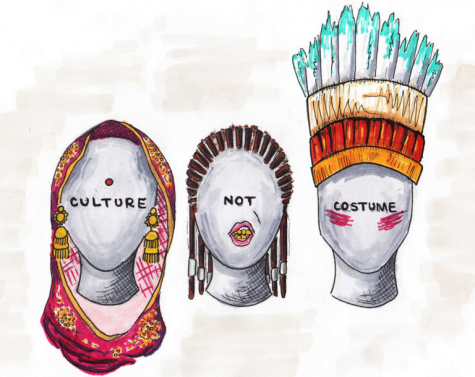
This type of ignorance, intentional or not, has an after effect on people where they feel even smaller and eventually come to believe that it doesn’t matter how hard they fight or how much love and pride they show in their culture. It doesn’t matter that the appropriated item was born from that culture and has created an impact on the generations of people’s lives, in the eyes of today’s society that custom will always look better on white skin.
Large fashion corporations, mainstream media outlets, and ignorant college students all have a habit of misappropriating customs, traditions, and ultimately the identities of the people who belong to a culture. And sometimes, we might unknowingly be accomplices to the crime. By buying clothes from the company at fault, liking an Instagram post with frat boy wearing a Native American headdress in it, or even by simply standing still as these people continue to hurt those of a different culture, most of us have become a co-conspirator.
We all want to live comfortably and happily. No one goes through life chasing misery, hoping to be lonely, poor and bitter. But as our greed continues to lead us towards the money, we must hold ourselves, as well as the community around us to a higher moral standard. Take a step back and really look at your favorite brands. Instead of being blinded by the pretty colors and the “trends” mass media preaches, think deeply about how the actions of these companies could affect other people.
When we’re all walking around, trying to create a better life for ourselves in this world, beware of where your feet land. Watch that they don’t cross any lines and accidentally cause someone else to lose a piece of who they are. If we can all just learn to respect each other and stop seeing people as an opportunity to make a profit, our world will be able to flourish even more. But without all the pain and hurt that cultural appropriation causes.
Results from “Is it Cultural Appropriation?” Survey:

Grade: 10th
Position: Copy Editor
Favorite hobbies/activities: baking, reading and tAkInG LoNg WaLkS oN tHe BeAcH.
Michelle Hwang is currently...
Ryan Nash • May 22, 2019 at 10:54 pm
No mention of the biggest act of cultural appropriation this country experiences every year? SAINT PATRICKS DAY! The Irish have been an oppressed group since the founding of this nation. When the Irish first immigrated here and for decades after they faced a form of segregation that, although not as bad as what whites and blacks experiences, it still was horrendous. Many jobs were open to all kinds of people, but in the fine text of the job papers it would state “Irish need not apply”. Many people refused to even get near the Irish and forced them into their own shoddy towns cramped with disease and vermin! Still today some Anti-Irish sentiment exists in America with the American rapper Azelia Banks calling the Irish “inbred” just this year! This has just been in America, globally the Irish have been prosecuted, forced into practical slavery, and not to mention the daily hate crimes in England that are committed against them! Despite all this, Irish culture and way of life has persisted, but imagine how it must feel to see people who have historically oppressed you getting drunk and dressing up like a stereotypical leprechaun YEAR AFTER YEAR! Not knowing any of the history behind Saint Patrick’s day and Irish symbols and myths like the leprechaun. Good piece, but I feel as if Irish Cultural appropriation is the biggest form of cultural appropriation in America today and should be mentioned.
Sources:
https://www.irishcentral.com/opinion/niallodowd/why-the-irish-were-both-slaves-and-indentured-servants-in-colonial-america
http://www.nyaoh.com/2009/02/21/91/
https://www.youtube.com/watch?v=lvtKolUaMO4
https://www.theroot.com/when-the-irish-weren-t-white-1793358754
https://www.loc.gov/teachers/classroommaterials/presentationsandactivities/presentations/immigration/irish6.html
https://www.history.com/news/when-america-despised-the-irish-the-19th-centurys-refugee-crisis